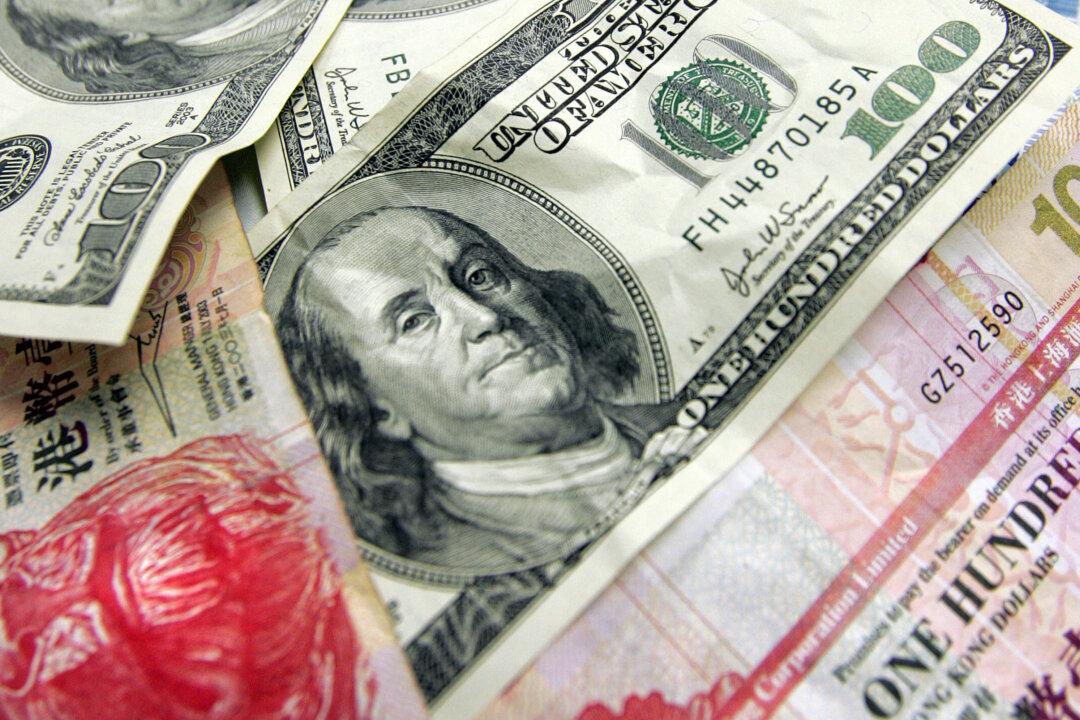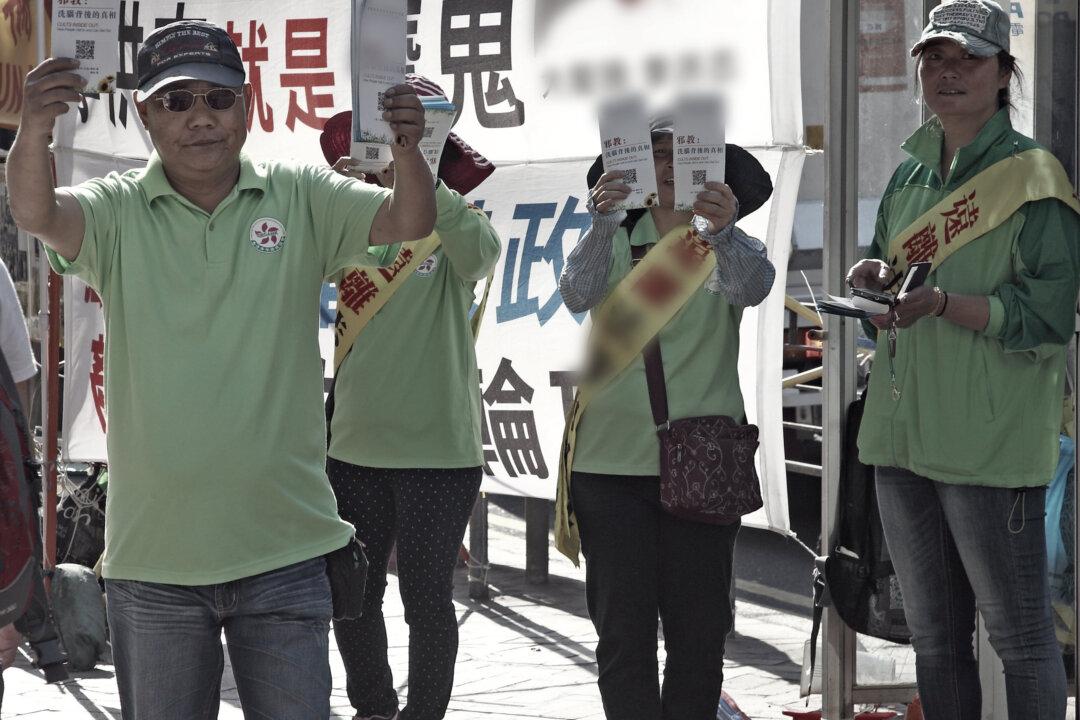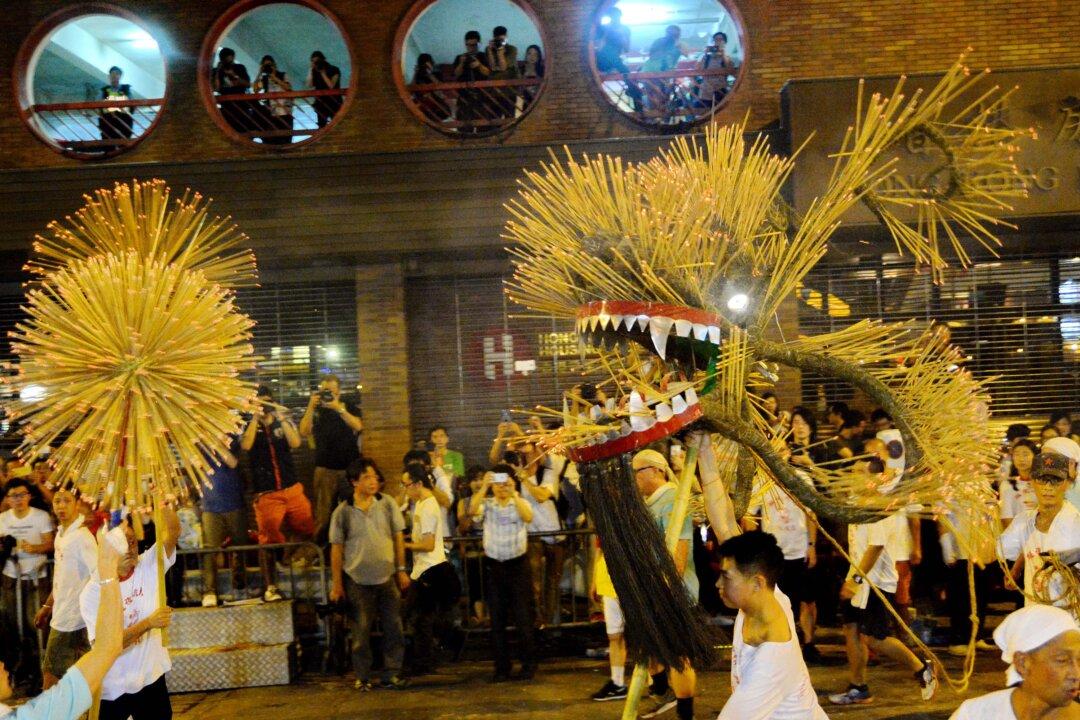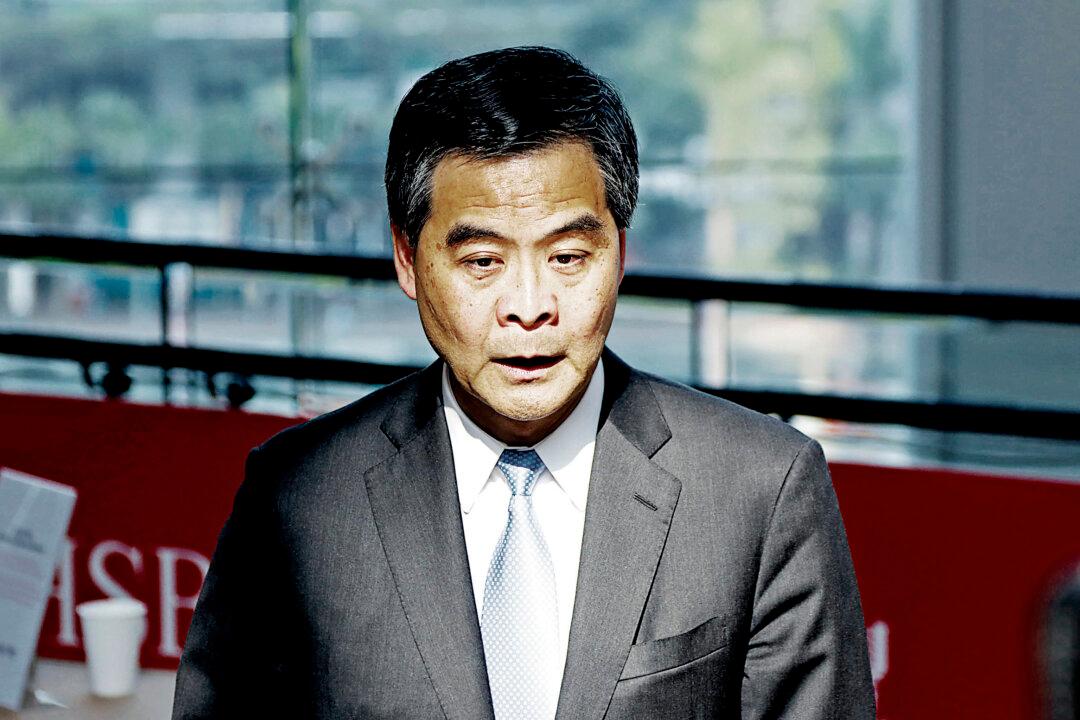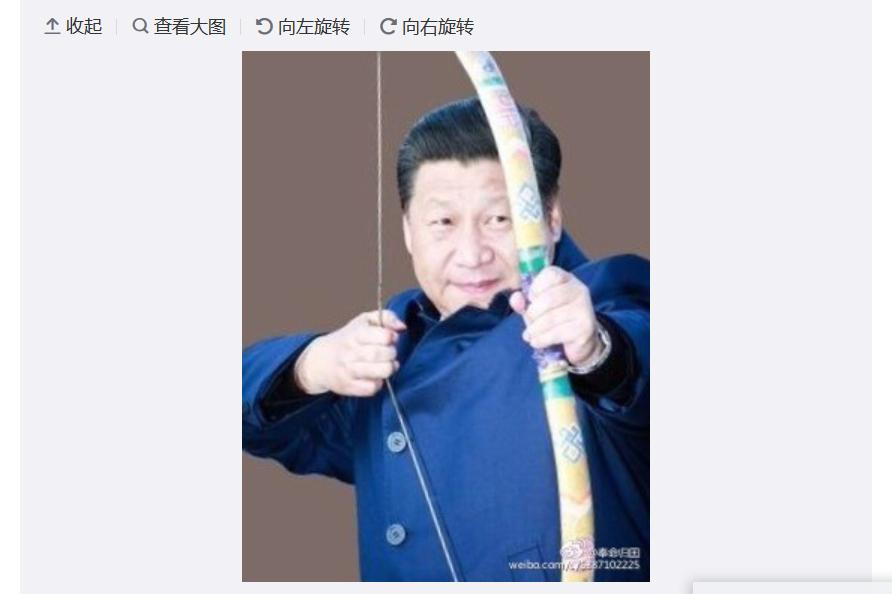HONG KONG—The Hong Kong Monetary Authority (HKMA) has intervened in the currency market eight times in just ten days due to recent unusual fluctuations of the Hong Kong dollar’s effective exchange rate index.
Some bankers have said it is unusual that the HKMA is performing so many capital injections. There has not been a consensus in the industry as to why there has been a sudden increase in the demand for the Hong Kong dollar or where the influx of money is going.
The public also has many different opinions on the subject. Regulatory authorities and financial institutions are closely monitoring the market development.
Some suspect the money is coming from mainland China. According to financial experts, the funds outstanding for the foreign exchange of the People’s Bank of China has been rapidly decreasing for the past two months.
This may reflect a large outflow of capital from mainland China, which could be the source of Hong Kong’s influx of capital, the financial experts stated.
On July 10, during the European trading hours after the Hong Kong market closed, the HKMA undertook the selling of US dollars and injected $2.325 billion into the banking system. Along with the $2.6 billion that was injected during the American session in the morning, the HKMA injected a total of $4.9 billion, which raised the aggregate balance of the banking system to $186.981 billion by July 14.
Many Explanations
The HKMA has stated in a press release that the influx of money into Hong Kong may be related to merging the activities of the Hong Kong dollar with corporate dividends. They explained that their repeated capital injections over the past few days are meant to ensure that the lower exchange rate limit of HK $7.75 per US dollar is met.
According to the Asia-Pacific chief investment officer at UBS Wealth Management, Pu Yonghao, the recent cash inflow might be because mainland China and Hong Kong have cheaper stock market values. Moreover, there have been many new shares in the market, attracting many investments.
On the other hand, some analysts believe the Hong Kong stock market has been relatively quiet recently. Since the e-commerce company Alibaba Group changed to target the U.S. stock market, there is yet to be news about large enterprises being listed in the Hong Kong stock market during the second half of the year.
Most companies listed are relatively small or medium-sized, the funds raised are not high, and there is nothing that would attract a large influx of money.
There are also rumors that the influx is for the pilot program Shanghai-Hong Kong Stock Connect, which will launch in October. However, people in the treasury market believe that there is no reason for investors to invest two months early and at such a high Hong Kong dollar value.
Stanley Ng Yuet-ning, former Hang Seng Bank economic researcher and Hong Kong independent financial analyst, said perhaps the capital injection on July 1 was to stabilize the worries in the market. The central government may have been worried that there would be political conflicts in Hong Kong on July 1, the day of the Hong Kong protest for universal suffrage.
However, this argument has not been confirmed.
What Goes In Must Go Out
Another possibility is that the HKMA made multiple interventions because they are worried about the risks that could occur when this large influx flows back out.
“Many risks have continued to increase,” said Ceajer Chan Ka-keung, Secretary for Financial Services and the Treasury.
“Though the influx of money makes investors happy, one day the rush of hot money will leave. The government will pay more attention to the movement of the capital and its associated risks,” said Chan.
Hong Kong political and economic columnist Liao Shiming believes that the HKMA’s unusual capital injections mean that there is considerable pressure on the capital market. The HKMA is more worried about the outflow of capital than the inflow, he said.
“Hong Kong has implemented an exchange rate system connected with the U.S. dollar,” said Liao. “The usual situation is that if this amount of money is still in Hong Kong, even if it cannot be converted to U.S. dollars and taken away, the HKMA will not interfere.”
“Since the HKMA is interfering, this represents that a certain amount of capital has outflowed, and it is not a small number.”
Money From China?
With regard to the source of the capital influx, Chan believes it is due to a third round of quantitative easing (QE3), while other analysts believe it is an international influx of liquidity. Some are worried that it will be a repeat of the 1998 incident in which George Soros pegged Hong Kong’s Linked Exchange Rate System.
Liao, however, believes that most of the influx comes from mainland China.
Liao used statistics released by China’s central bank, the People’s Bank of China, on July 7 to illustrate that the central bank’s specification on funds outstanding for foreign exchange in May dropped 99 percent to 361 million RMB.
“This shows that there is a large outflow of foreign capital,” Liao said. “It means that with the political turmoil in China, the capital is flowing out of China.”
“My guess is that Hong Kong is a transfer point or a resting point for the outflow of capital from China, and the final destination is some more mature markets overseas,” Liao added.
The general outlook is that mainland China’s economy has reached a crisis, Liao said.
“Many people are most concerned about financial security. Whether they will make a profit is only of second importance. Thus, the first step is to move the capital overseas,” he said.
As an example, Liao said that in recent years Hong Kong’s property market and stock market have remained at a high value, which is also related to the influx of capital from mainland China.
“Hong Kong’s economic growth is not good, and the local interest rates are not high, but capital-intensive industries such as real estate and stocks have continued to increase. This is obviously because people are injecting money into Hong Kong,” said Liao.
“If the ability to make a profit in Hong Kong does not exceed that in other places in the world, why would international capital inject into Hong Kong? It is obviously not necessary,” he said.
“Thus this capital inflow must come from the Mainland,” Liao concluded.
Bank of China Blamed
China Central Television (CCTV), a mouthpiece of the Chinese Communist Party (CCP), has recently broadcasted high-profile reports that the Bank of China has been involved with money laundering.
The state-owned commercial bank has been helping migrants transfer investment funds overseas in amounts that exceed the limit set by the Chinese government. CCTV accused the bank of evading the government’s control over cross-border capital transfers.
The Bank of China stated that this event is a pilot program, a trial event using the capital account opened by the state.
The bank’s governor, Zhou Xiaochuan, has remained silent on the issue. He stated that the incident happened so recently that they need time to understand the situation, so they will not be responding at this stage.
Liao, who is familiar with the behind-the-scenes events of the Chinese financial market, said that the event of money laundering by the Bank of China is a very large scale event that is commonly known internationally. He said that many commercial banks provide a similar service, and it is not a surprise.
Liao expressed doubts about the credibility of the CCTV’s reports.
According to Reuters reports, immigration investments have taken away large amounts of capital, causing the central government to be anxious. Liao agreed.
“First, its social system does not provide a sense of security to rich people. Second, China’s economic growth has obviously encountered some obstacles, so the capital profit has faced some problems,” he said. “These people definitely want to outflow their capital, which causes some trends to develop.”
Liao stated that the Bank of China’s cross-border transfer service is a procedure that was originally created by the government.
“They were preparing to seek some methods that would allow some of China’s foreign capital to leave China,” said Liao. “As they have a large foreign capital reserve, this is an unhealthy thing for China.”
According to Reuters, the Bank of China firmly stated that the cross-border transfer service is not illegal, so they would not stop the service.
The Wall Street Journal reported that the Chinese government restricts individuals’ and corporates’ ability to transfer funds across the border. Chinese individuals are not allowed to exchange or transfer more than US$50,000 out of China each year.
Chinese companies can convert renminbi to foreign currencies under approved business purposes, such as through approved inflow capital or foreign investments.
This enclosed system has many holes, and the rules are often ignored or overridden. Stimulated by the economic slowdown and the domestic political instability, prosperous Chinese citizens are increasingly immigrating to the United States, Canada, and Australia by making large investments.
CCP leader Xi Jinping’s recently launched anti-corruption campaign has also frightened many Chinese officials, creating a trend to transfer capital out of China.
According to China Business News, there are many methods for transferring funds out of China, including “underground banks,” using intermediaries to transfer funds, false trading, or even a visit to Macau.
Translated by Veronica Wong. Written in English by Sally Appert.
